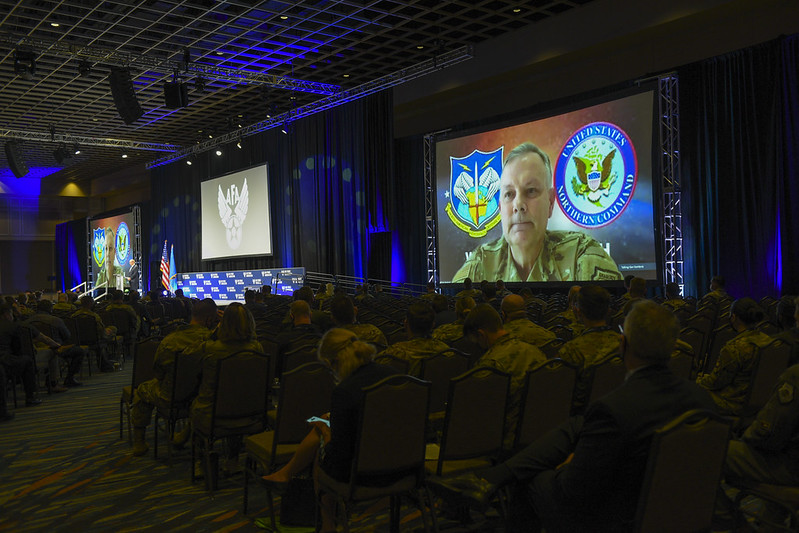The U.S. needs to prioritize the protection of certain critical infrastructure in light of potential cyberattacks and the fact that both China and Russia possess peer-level nuclear weapons, said the general in charge of homeland defense.
The commander of U.S. Northern Command Air Force Gen. Glen D. VanHerck spoke at the AFA Warfare Symposium in Orlando, Fla., on March 3. VanHerck, also the commander of the North American Aerospace Defense Command, said the current “strategic environment” represents a shift.
“The strategic competitors that we face today have watched the way that we project power for at least two decades, if not longer than that, and they understand if we’re allowed to project that force forward, that won’t turn out well for them,” VanHerck said. “So they’ve developed capabilities below the nuclear threshold with the idea that they can delay [or] obstruct our force … or destroy our will.”
That’s resulted in other countries “ruining our decision space and our deterrence options from the homeland, especially, and it’s decreasing our senior leaders’ decision space,” he continued.
“And why we’re worried about that is the risk of strategic deterrence failure goes up dramatically.”
Therefore the U.S. needs to start “figuring out what we must defend” by defining the critical infrastructure that if attacked, could “bring us to our knees in a crisis or conflict,” VanHerck said.
“And that’s a broad decision across the interagency, in my mind, that requires some significant analysis looking at, “what are those key infrastructure areas that we need to focus on, and why do we need to focus on them. Is it to protect our finance capability? Is it to protect energy and economics?”
VanHerck mentioned that laws prevent the government from collecting intelligence inside the U.S. that could shed light on “which pieces of key infrastructure might be vulnerable” and said the command is building relationships with Congress, the National Security Council, and U.S. Cyber Command to try to figure out how to deal with that issue.

